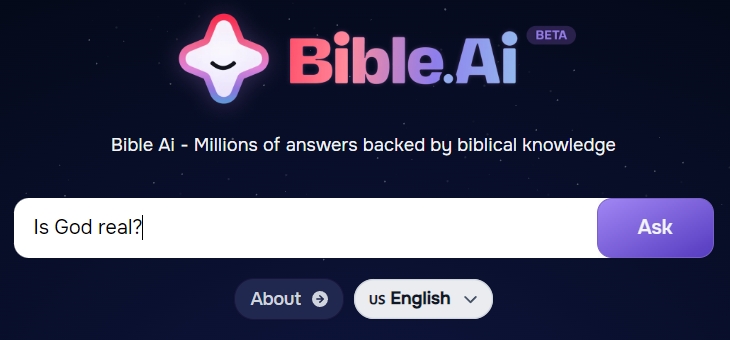Regarding God chatbots
All of us here are curious about the anticipated merger of artificial intelligence chatbots with religion. We are on the verge of another reformation or something dark ages as AI insights begin to, as Steve Bannon would say, flood the zone with s**t. A Scientific American article discusses artificial intelligence religion chatbots:
God Chatbots Offer Spiritual Insights on Demand.What Could Go Wrong?Just before midnight on the first day of Ramadan last year, Raihan Khan—a 20-year-old Muslim student living in Kolkata—announced in a LinkedIn post that he had launched QuranGPT, an artificial-intelligence-powered chatbot he had designed to answer questions and provide advice based on Islam’s holiest text. Then he went to sleep. He awoke seven hours later to find it had crashed because of an overflow of traffic. A lot of the comments were positive, but others were not. Some were flat-out threatening.QuranGPT—which has now been used by about 230,000 people around the world—is just one of a litany of chatbots trained on religious texts that have recently appeared online. There’s Bible.Ai, Gita GPT, Buddhabot, Apostle Paul AI, a chatbot trained to imitate 16th-century German theologian Martin Luther, another trained on the works of Confucius, and yet another designed to imitate the Delphic oracle. For millennia adherents of various faiths have spent long hours—or entire lifetimes—studying scripture to glean insights into the deepest mysteries of human existence, say, the fate of the soul after death.[Bot creators] think that with their ability to identify subtle linguistic patterns within vast quantities of text and provide responses .... the bots can theoretically synthesize spiritual insights in a matter of seconds, saving users both time and energy. It’s divine wisdom on demand.[One emerging use] is biblical translation. Before now this work was painstakingly slow; translating ancient sources into the English King James Bible, first published in 1611, took seven years and a host of devoted scholars. But LLMs [large language AI models] are expediting the process, enabling scholars to expand the Bible’s reach. A platform called Paratext, for example, uses natural language processing to translate esoteric terms from scripture—such as “atonement” or “sanctification”—to produce what it describes on its website as “faithful translations of the scriptures.”
AI could help to reinvigorate theology or religious study. Computer scientist Mark Graves believes that LLMs could hypothetically be used to chip away at rigid religious orthodoxy. “In a certain sense, there’s not much that’s been new in theology for, like, 800 years,” says Graves, who is the director of the nonprofit AI and Faith, which wrestles with the ethical challenges of AI. “Generative AI can help with that transition of breaking out of the box ... and creating new ideas.”
Chatbots have responded with deplorable advice. There have been documented cases of Gita GPT condoning murder while citing passages from the Bhagavad Gita. Killing someone, it says, is okay as long as it’s done for the sake of protecting one’s dharma, or duty.
Hm, AI creating new ideas about religion? That sounds like AI-generated porn deepfakes. But some people will probably adopt those ideas as inspired by God guiding the AI to speak truths that humans have been to unworthy to unearth for themselves, or something about like that. Religious grifters can claim AI insight is their own as revealed to them by God.
Deplorable advice? Nah, not possible. But officer, Gita GPT said it was OK because I was protecting my dharma!
Qs: 1) Is this nuts or what? 2) Where is Pee Wee Herman when we need him?
By Germaine: Anti-crackpotarian waiting for the AI-sanctioned deification of Sasquatch






Comments
Post a Comment